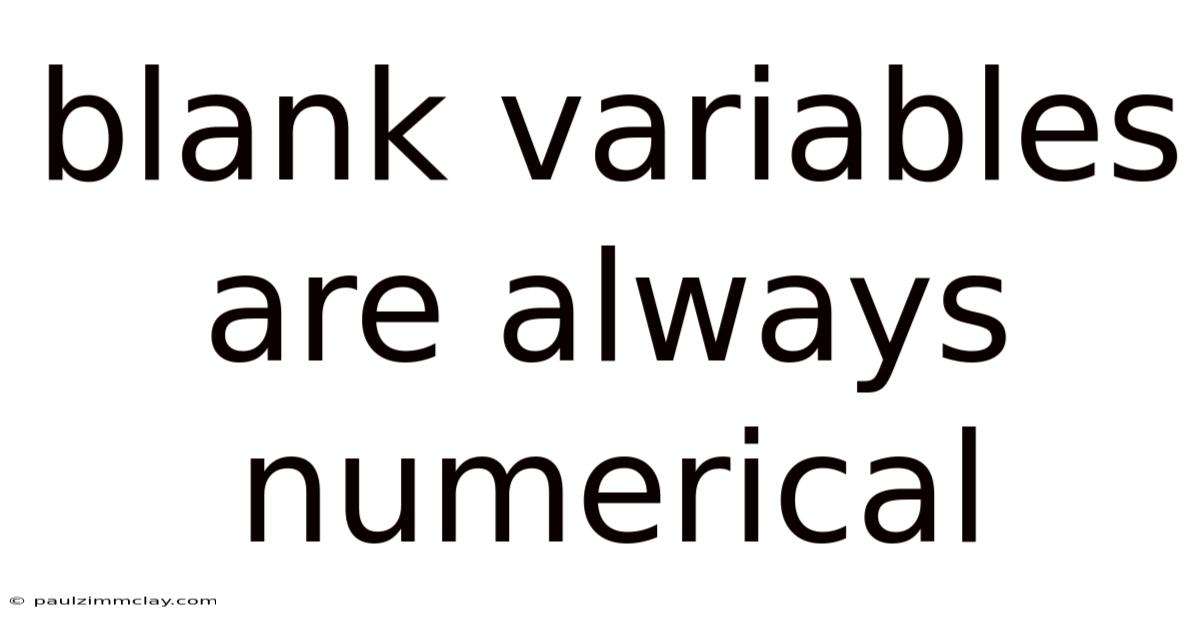Blank Variables Are Always Numerical
paulzimmclay
Sep 23, 2025 · 7 min read

Table of Contents
Blank Variables Are Always Numerical: A Deep Dive into Data Types and Implicit Conversions
The statement "blank variables are always numerical" is incorrect. This misconception often arises from a lack of understanding about how programming languages handle uninitialized variables and the concept of data types. Understanding data types and how they behave is fundamental to writing robust and reliable code. This article will explore the nuances of variable initialization, different data types, and the implicit conversions that can sometimes lead to numerical interpretations of seemingly "blank" variables. We’ll delve into various programming languages to illustrate these concepts.
Introduction to Data Types
Before we tackle the myth, let's establish a solid foundation. A data type specifies the kind of values a variable can hold and the operations that can be performed on it. Common data types include:
- Integer (int): Whole numbers (e.g., -2, 0, 10).
- Floating-point (float): Numbers with decimal points (e.g., 3.14, -2.5).
- Boolean (bool): Represents true or false values.
- Character (char): Represents a single character (e.g., 'A', 'b', '
Latest Posts
Latest Posts
-
Convert 287 Kpa To Atm
Sep 23, 2025
-
Quotes From Frankenstein Chapter 5
Sep 23, 2025
-
You Perceive Yourself Through Your
Sep 23, 2025
-
Ap Bio Blast Lab Answers
Sep 23, 2025
-
Post Test Beginning A Journey
Sep 23, 2025
Related Post
Thank you for visiting our website which covers about Blank Variables Are Always Numerical . We hope the information provided has been useful to you. Feel free to contact us if you have any questions or need further assistance. See you next time and don't miss to bookmark.